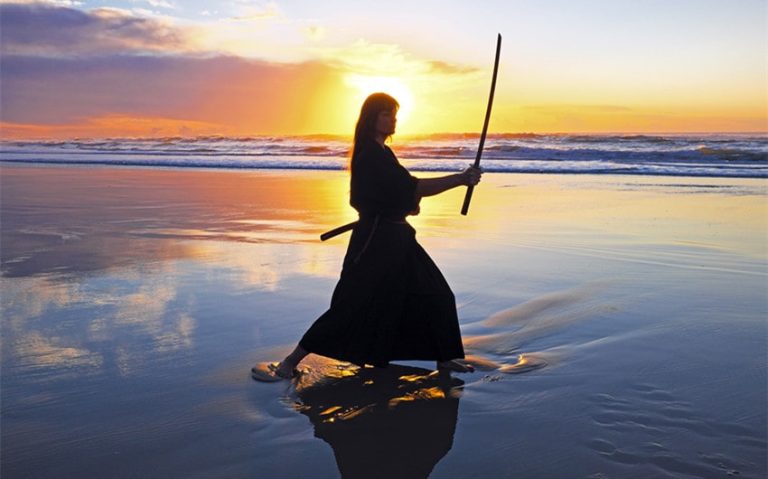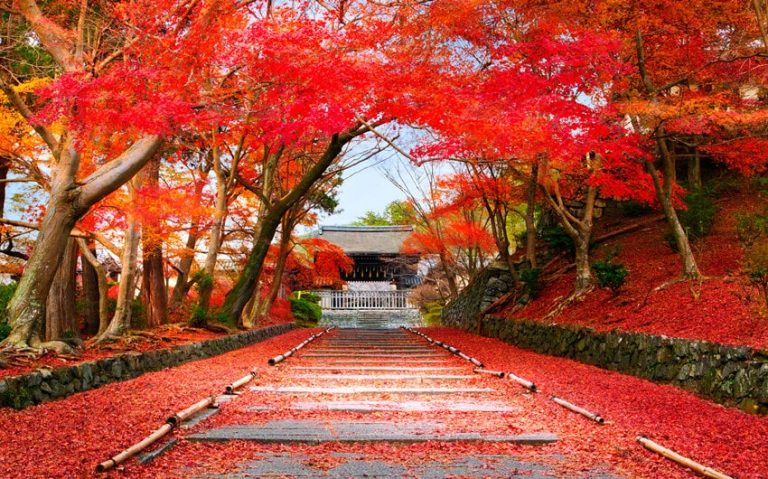Water is a part of our everyday life—calming, refreshing, and always moving forward. It reminds us of quiet strength, peace, and beauty. Just like names, water carries meaning that can shape how we feel and how we see the world.
If you’re drawn to names that reflect nature and emotion, you might love exploring names inspired by this gentle element. In this article, we’ll look at a lovely list of Japanese girl names that mean water.
Japanese Girl Names That Mean Water

- Mizuki (瑞希 / 美月 / 水希) – Often includes the kanji for “water” (水) or “hope”; a graceful, water-inspired name.
- Minami (南 / 美波) – Can mean “beautiful wave,” evoking the image of the sea.
- Umi (海) – A simple and lovely name that literally means “sea” or “ocean.”
- Nami (波) – Means “wave,” representing rhythm, flow, and the sea’s movement.
- Mizuno (水野) – A nature-based name meaning “field of water” or “water plain.”
- Suiren (睡蓮) – Means “water lily,” a flower that floats gently on water.
- Sui (水) – A minimalist name meaning “water” on its own.
- Nagisa (渚) – Means “shore” or “water’s edge,” evoking peaceful seaside scenes.
- Harumi (晴海 / 陽海) – Can mean “sunny sea” or “spring sea,” suggesting calm, bright waters.
- Umika (海香 / 海花) – Combines “sea” with “fragrance” or “flower” for a soft, oceanic feel.
- Misaki (美咲 / 海咲) – Often written with kanji meaning “beautiful bloom” or “blooming by the sea.”
- Izumi (泉) – Means “spring” or “fountain,” referring to natural freshwater sources.
- Shizuku (雫) – Means “droplet,” like a falling bead of water—gentle and delicate.
- Ruri (瑠璃) – A poetic name for “lapis lazuli,” often linked to deep, clear water.
- Amina (亜美渚) – Though less traditional, can include water-based kanji like “nagi” (渚), meaning shore.
- Ayumi (歩美 / 歩海) – Can be interpreted as “walking beauty” or combined with “sea” for a water touch.
- Nozomi (望海) – Means “hopeful sea” when written with 海 (umi); full of poetic calm.
- Fumi (芙美 / 芙海) – Sometimes paired with “sea” or lotus references for a graceful, watery feel.
- Marin (まりん / 真凛) – Sounds like “marine,” and may be written with kanji suggesting purity or coolness.
- Sumire (菫) – While meaning “violet,” it’s often connected to purity and gentle nature, like water.
- Yuuna (優渚 / 優波) – Commonly written with “gentle” and “shore” or “wave” kanji.
- Rinko (凛子 / 涼子) – Can include 涼 (“cool”), linking it to refreshing water and breeze.
- Sayumi (沙由美) – May incorporate “sand” (沙), hinting at seaside or shore.
- Seira (星羅 / 清良) – Some versions include “pure” or “clear,” evoking the feeling of clean water.
- Nanami (七海) – Means “seven seas,” a clear and direct connection to water.
- Hinami (陽波) – Includes “wave” (波), often interpreted as “sunny wave.”
- Ayaka (彩香 / 綾夏) – Can use water-related kanji, especially in more poetic, nature-inspired versions.
- Kaori (香織 / 香海) – Sometimes written with the “sea” kanji for “fragrant sea.”
- Wakana (和奏 / 若渚) – Can include “nagi” (渚), meaning shore or beach.
- Mizuho (瑞穂 / 水穂) – May contain 水 (water) and means “abundant harvest,” linked to rice and water.
- Honami (穂波) – Can be read as “wave of grains,” symbolizing nature’s rhythm, often tied to flowing water.
- Sakumi (咲海) – Combines “bloom” and “sea,” reflecting beauty and nature.
- Amane (天音 / 天音海) – Can include sea-related kanji; also suggests sound of rain or waves.
- Reina (怜渚 / 玲奈) – Some forms include kanji for shore (渚), giving it a soft water theme.
- Rina (璃奈 / 凛渚) – Variants can include cool, clear, or shore kanji.
- Aoi (葵 / 碧) – Often associated with the color blue or deep ocean hues.
- Sango (珊瑚) – Means “coral,” directly connecting to ocean life.
- Hiyori (日和) – Refers to “good weather,” often linked with peaceful sea days.
- Shion (紫苑 / 潮音) – Can be written with “tide” and “sound,” meaning “sound of waves.”
- Yukari (雪渚 / 由佳梨) – Some kanji forms include shore (渚) or references to natural purity.
- Suika (水花) – “Water flower”; a poetic and delicate name evoking natural beauty.
- Mizuna (水菜) – “Water greens”; also a type of leafy vegetable, fresh and light.
- Umine (海音) – “Sea sound”; suggests the calming sound of waves or the sea.

- Mizue (水恵 / 瑞恵) – “Blessing of water” or “auspicious blessing”; associated with grace and purity.
- Natsumi (夏海) – “Summer sea”; evokes warmth, freedom, and the sea in summertime.
- Kaisei (海晴) – “Clear sea” or “calm ocean”; serene and refreshing in meaning.
- Umiyo (海世) – “World of the sea”; suggests vastness, depth, and connection to nature.
- Namika (波香) – “Fragrant wave”; combines the softness of scent with the movement of waves.
- Suzuha (涼葉) – “Cool leaf”; refreshing and gentle, like a breeze near water.
- Misora (海空) – “Sea and sky”; a vast and poetic name that evokes freedom and nature.
- Umina (海奈) – “Beautiful sea” or “graceful sea”; elegant and peaceful.
- Izuna (泉奈) – “Spring (water source)” + a graceful feminine ending; suggests clarity and origin.
- Minamo (水面) – “Water surface”; calm, reflective, and peaceful.
- Suina (水奈) – “Water” + a soft, feminine suffix; simple and fluid in meaning.
- Mizuka (水香) – “Water fragrance”; a delicate name that evokes freshness and grace.
- Kaiko (海子) – “Child of the sea”; a classic, poetic sea-themed name.
- Narumi (成海) – “Becoming the sea” or “achieving sea”; suggests growth and depth.
- Umari (海莉) – “Sea jasmine”; combines ocean imagery with a floral, graceful touch.
- Naminé (波音) – “Sound of waves”; soft and lyrical, evoking the peaceful rhythm of the ocean.
- Suikae (水映) – “Water reflection”; a beautiful name that brings to mind calm water and quiet strength.
- Miona (澪奈) – “Waterway” (澪) and a soft, feminine ending; evokes flowing water.
- Reimi (怜海 / 玲海) – Often written with kanji meaning “wise” or “clear” + “sea.”
- Seina (星渚 / 清渚) – Can include “shore” (渚), meaning “pure shore” or “starlit shore.”
- Hinatsu (陽夏津 / 陽渚) – “Sunshine” and “summer” + “harbor” or “shore”; suggests warmth by the water.
- Unami (海波) – “Sea wave”; directly connected to ocean and movement.
- Rion (璃音 / 涼音) – Can include “cool” (涼) and “sound,” suggesting refreshing tones like water.
- Shigure (時雨) – “Drizzle” or “late autumn rain”; poetic and seasonal.
- Mina (美波 / 水奈) – Often includes “wave” or “water,” meaning “beautiful wave” or “graceful water.”
- Sumina (澄奈) – “Clear” (like water) and soft feminine kanji; pure and serene.
- Suiha (水葉) – “Water leaf”; gentle and nature-themed.
- Umiha (海羽) – “Sea feather” or “sea wing”; light and oceanic.
- Reika (怜花 / 冷夏 / 澪花) – Variants include “wise flower,” “cool summer,” or “waterway flower.”
- Umeka (海香) – “Sea fragrance”; poetic and feminine.
- Ruka (流花 / 涼夏) – Can mean “flowing flower” or “cool summer.”
- Mikasa (水笠 / 美笠) – Variants include water-related kanji meaning “water hat” or nature themes.
- Sena (瀬奈) – “Shallow stream” (瀬) + gentle suffix; calm and flowing.
- Izuki (泉希) – “Spring” (泉) + “hope”; connected to fresh water sources.
- Rumi (瑠美 / 涼美) – Can mean “clear beauty” or “cool beauty.”
- Suzune (涼音) – “Cool sound”; refreshing and melodic.
- Haruhi (春日 / 陽陽 / 晴海) – In some forms, means “spring sun” or “clear sea.”
- Minori (実海 / 美乃莉) – Some variants use “sea” kanji, meaning “fruitful sea” or “beautiful harvest.”
- Uminae (海苗) – “Sea seedling”; symbolic of growth near the ocean.
- Mirei (水玲 / 美玲) – Variants include “water” and “lovely sound” or “beauty.”
- Kairi (海里) – “Ocean village” or “sea distance”; modern and fresh.
- Aira (愛渚) – “Beloved shore”; romantic and calm.
- Rukae (流花映) – “Flowing flower reflection”; poetic and nature-inspired.







